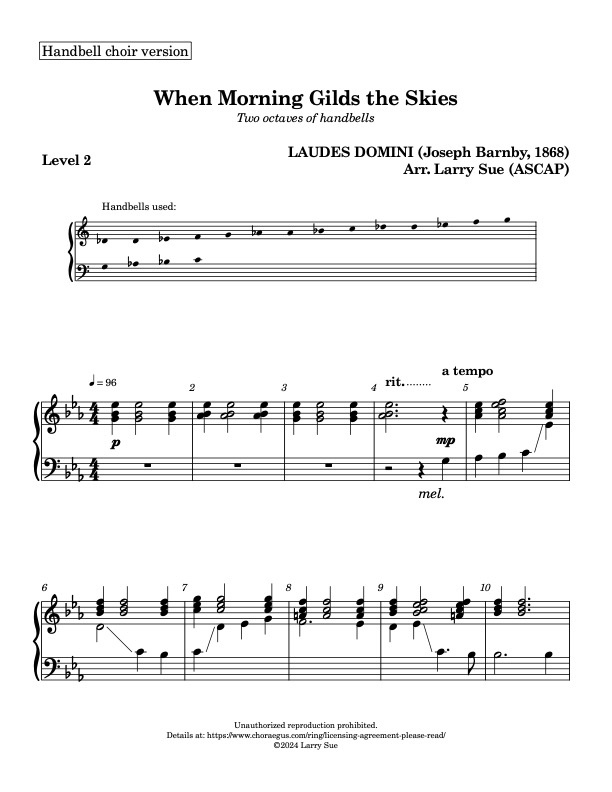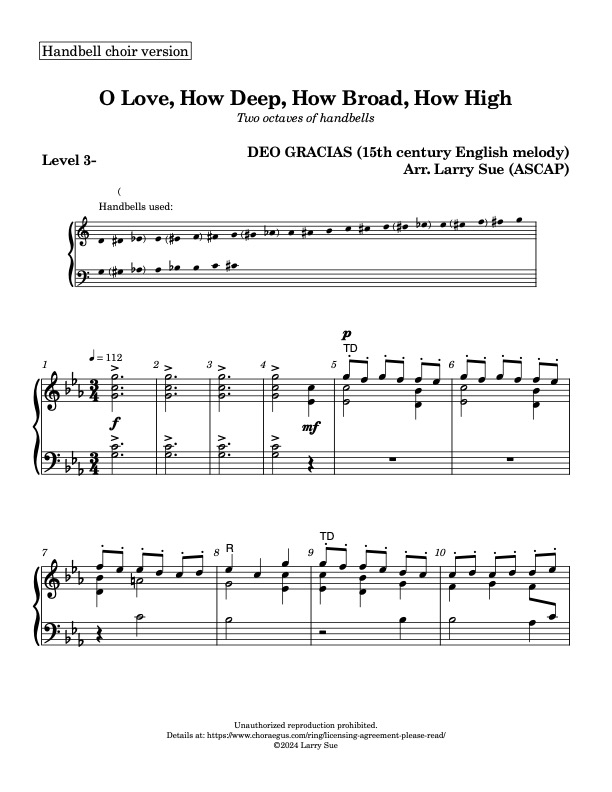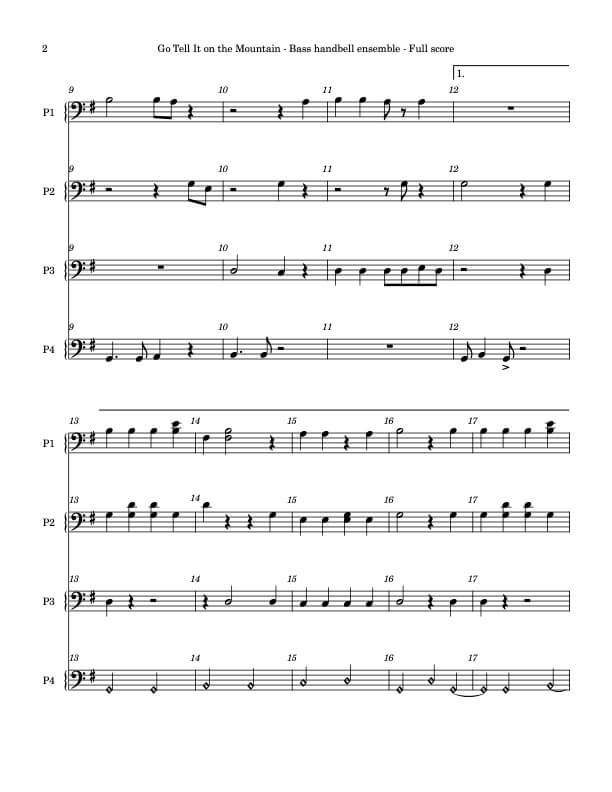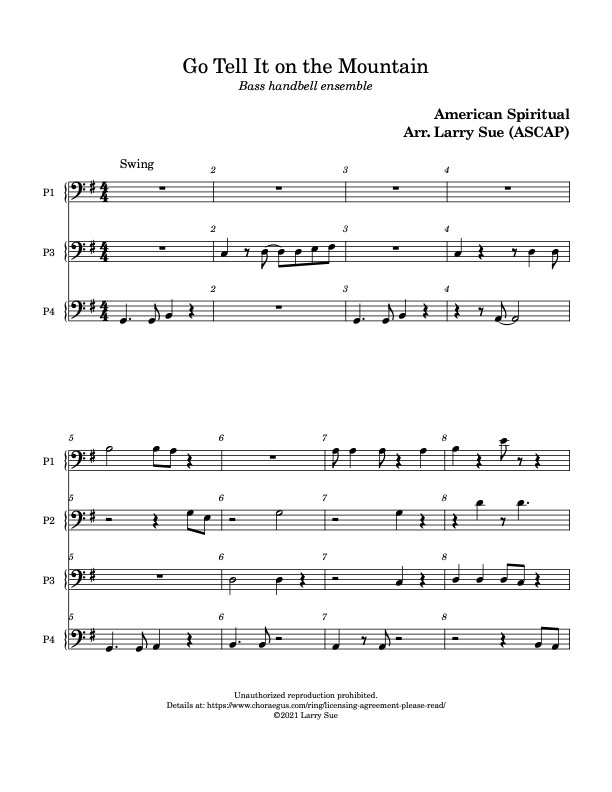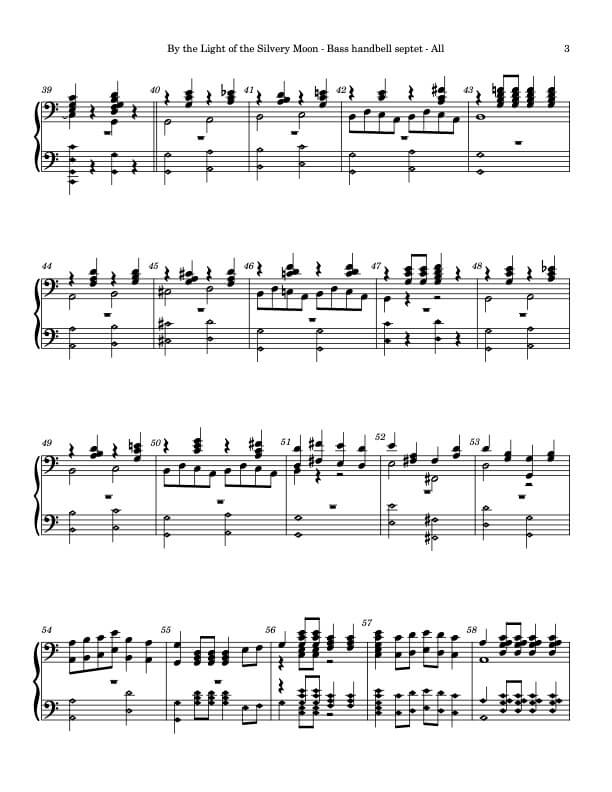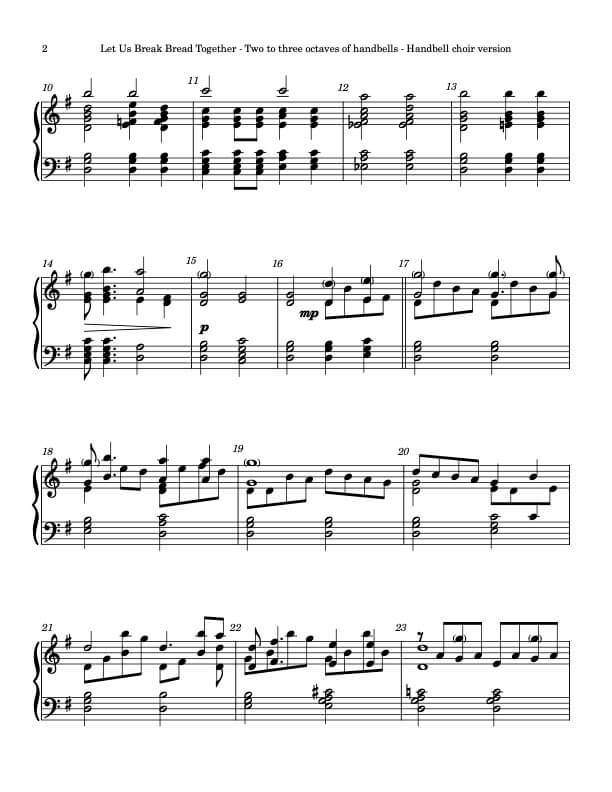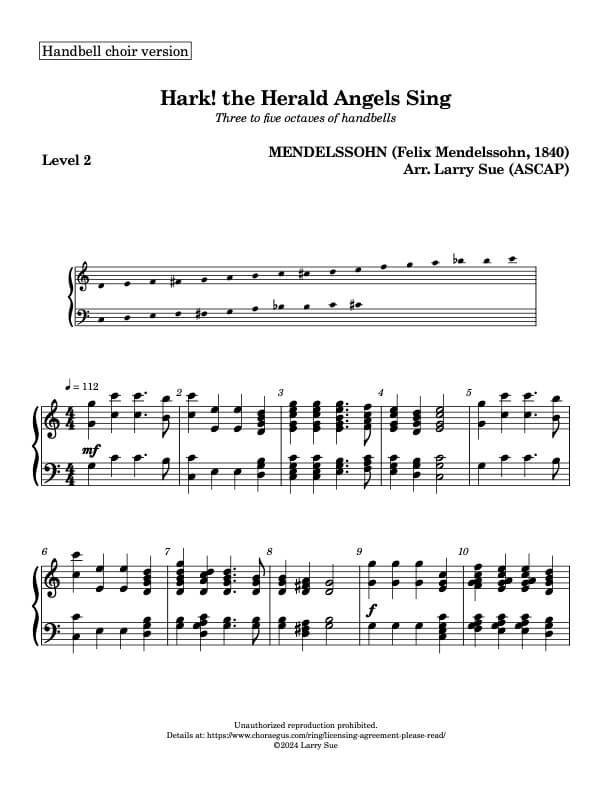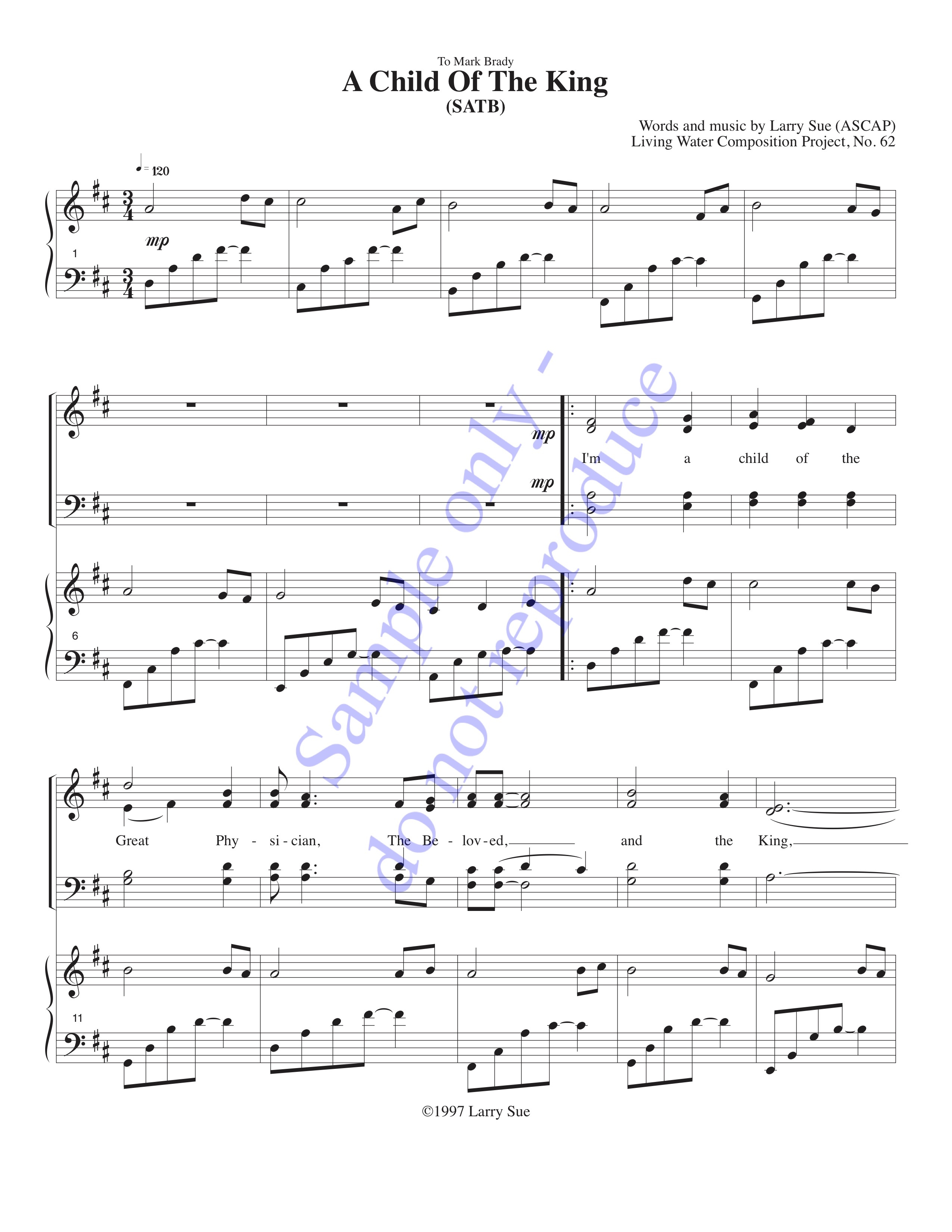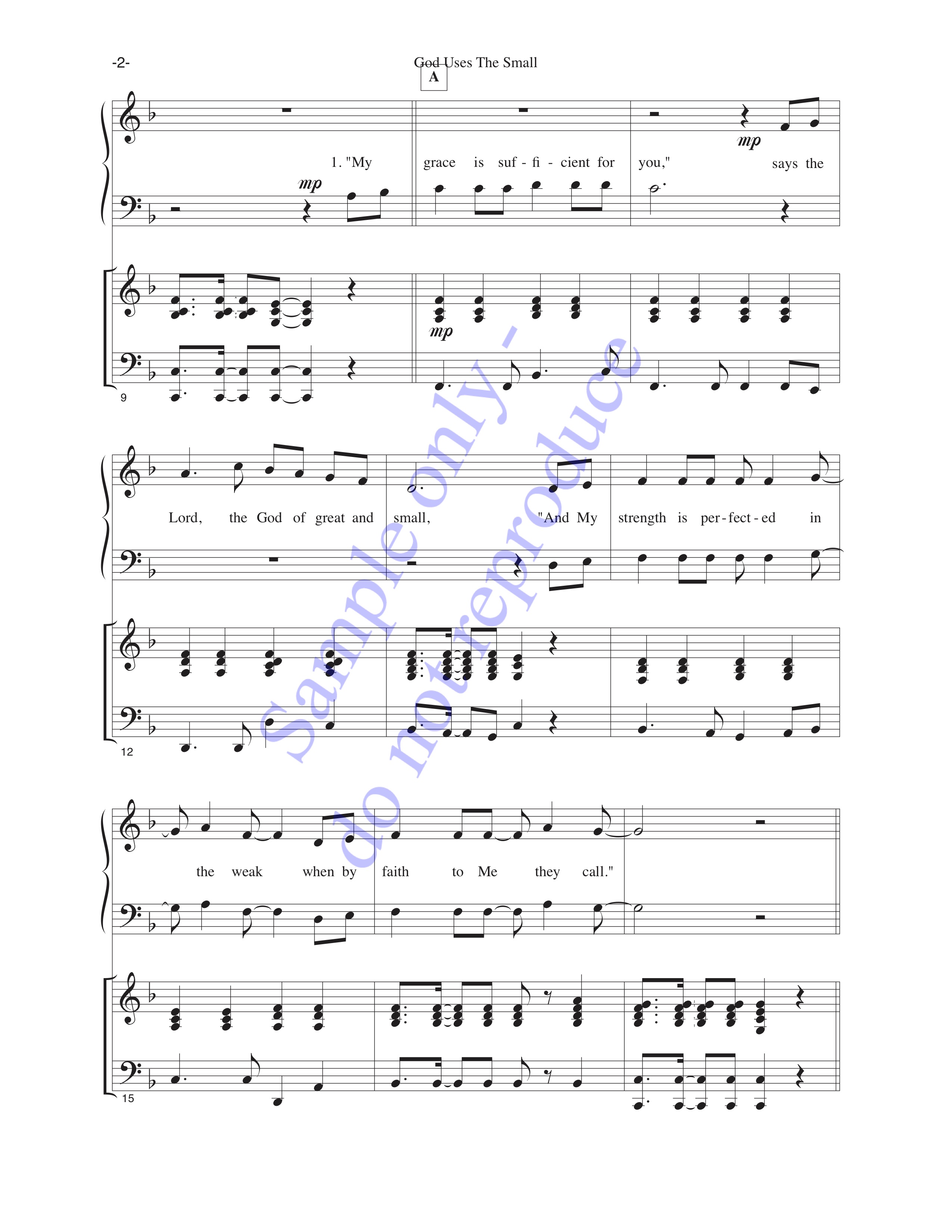Hills of the North, Rejoice is usually sung in the United Kingdom as an Advent song. Here’s our arrangement for eight handbells and piano. Hills of the North, rejoice, river and mountain-spring, hark to the advent voice; valley and lowland, sing. Christ comes in righteousness and love, He brings salvation from above. Isles of the …
Tag: Christmas
Christmas is traditionally celebrated on December 25th as the remembrance of the birth of Jesus Christ (Luke 2).
Liturgically, Christmas is twelve days in length (hence the song, "The Twelve Days of Christmas"), ending on Epiphany (also known as Three Kings' Day).
Churches and celebrants who choose to be less precisely liturgical rejoice with Christmas music (and Epiphany music!) all the way through Advent as well. The important thing is to rejoice, of course.
Love Came Down at Christmas (GARTAN) (eight handbells and piano)
Christina Rossetti wrote the poem Love Came Down at Christmas in 1885. It traditionally has been set to the Irish traditional tune GARTAN. This arrangement for eight handbells and piano expresses her words quietly and peacefully. Love came down at Christmas, Love all lovely, Love Divine, Love was born at Christmas, Star and Angels gave …
Oct 21
Away in a Manger (CRADLE SONG) for six handbells and piano
The Christ Child has been born, and sleeps in the manger. This gentle arrangement for six handbells and piano tells the Christmas story with a quiet elegance. Away in a manger, no crib for a bed, the little Lord Jesus laid down His sweet head; the stars in the heavens looked down where He lay, …
Gesu Bambino (Handbells, 3 or 5 octaves with piano, Level 3)
Gesu Bambino (“the Christ Child”) is a Nativity song from 1917. It’s a lullaby for the Child, but also a call to worship for all others as He awaits them at the Bethlehem manger. Pietro A. Yon, the composer, created the melody so that it would mesh perfectly with VENITE ADOREMUS (“O come, let us …
Oct 14
Gesu Bambino (Handbells, 3 or 5 octaves with piano, Level 3)
Gesu Bambino (“the Christ Child”) is a Nativity song from 1917. It’s a lullaby for the Child, but also a call to worship for all others as He awaits them at the Bethlehem manger. Pietro A. Yon, the composer, created the melody so that it would mesh perfectly with VENITE ADOREMUS (“O come, let us …
Oct 11
We have an add-on flute part for Ding Dong, Merrily on High!
Some years ago, Carla and I created an accompanied eight-bell arrangement of Ding Dong, Merrily on High. Well, that was so much fun that when we were preparing to perform a miniconcert with Gary and Martha Matthews, we added a flute part so that Martha, flutist extraordinaire, could be part of the fun – and …
Love Came Down at Christmas (GARTAN) (eight handbells and piano)
Christina Rossetti wrote the poem Love Came Down at Christmas in 1885. It traditionally has been set to the Irish traditional tune GARTAN. This arrangement for eight handbells and piano expresses her words quietly and peacefully. Love came down at Christmas, Love all lovely, Love Divine, Love was born at Christmas, Star and Angels gave …
Sep 27
Love Came Down at Christmas (GARTAN) – for eight handbells and piano
Christina Rossetti wrote this poem in 1885. It traditionally has been set to the Irish traditional tune GARTAN. This arrangement for eight handbells and piano expresses her words quietly and peacefully. Love came down at Christmas, Love all lovely, Love Divine, Love was born at Christmas, Star and Angels gave the sign. Worship we the …
The Angel Gabriel from Heaven Came (GABRIELS MESSAGE) – Six handbells and piano
Our Christmas carols come from many places and times. The Angel Gabriel from Heaven Came originated in the Basque country between Spain and France, and has a lovely, mysterious feel. The Angel Gabriel from heaven came, his wings as drifted snow, his eyes as flame; ‘All hail,’ said he, ‘thou lowly maiden Mary, most highly …
Sep 20
Es ist für uns eine Zeit angekommen – for eight handbells
The title of this traditional Swiss Christmas carol translates as “Unto us a time has come”. It’s from the canton of Lucerne, and traditionally has been sung by Epiphany singers (groups that wear costumes appropriate to the coming of the Magi to Bethlehem). Our eight-bell arrangement of this carol will share the joy of the …


